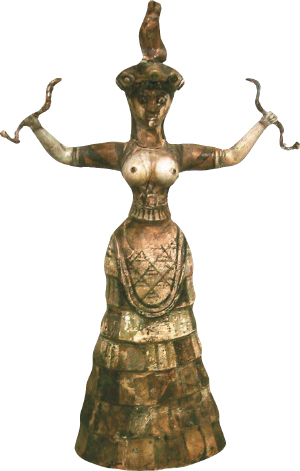Wisdom Is Better Than Folly (9:13–10:20)
Slaves on horseback … princes go on foot (10:7). Aspects of this passage have interesting parallels in the Egyptian texts. As Ecclesiastes complains of slaves on horseback, so The Complaints of Khakheperrē-sonb declares, “He who used to give commands is (now) one to whom commands are given.”37 The Admonitions of Ipuwer similarly complains, “Indeed, princes are hungry and perish, / Servants are served.”38 These Egyptian texts are not in all respects the same as Ecclesiastes; they tend to focus on the general lawlessness in society during times of political instability in Egypt, whereas Ecclesiastes is concerned more universally with the absurdities of human life. Still, both reflect a common way of describing a world gone wrong.
If the snake bites before it is charmed (10:11). Snake charming was well known in both Mesopotamia and Egypt. The practice apparently served a cultic purpose; a famous artifact from Crete is the Minoan Snake Goddess, a figurine dating to ca. 1600 B.C. of a woman holding aloft two snakes. She is apparently a priestess or goddess. Here in Ecclesiastes, however, snake charming is not a religious function but a matter of personal safety.

Minoan Snake goddess from the palace of Knossos
Chris 73/Wikimedia Commons, courtesy of the Archaeological Museum of Herakleion